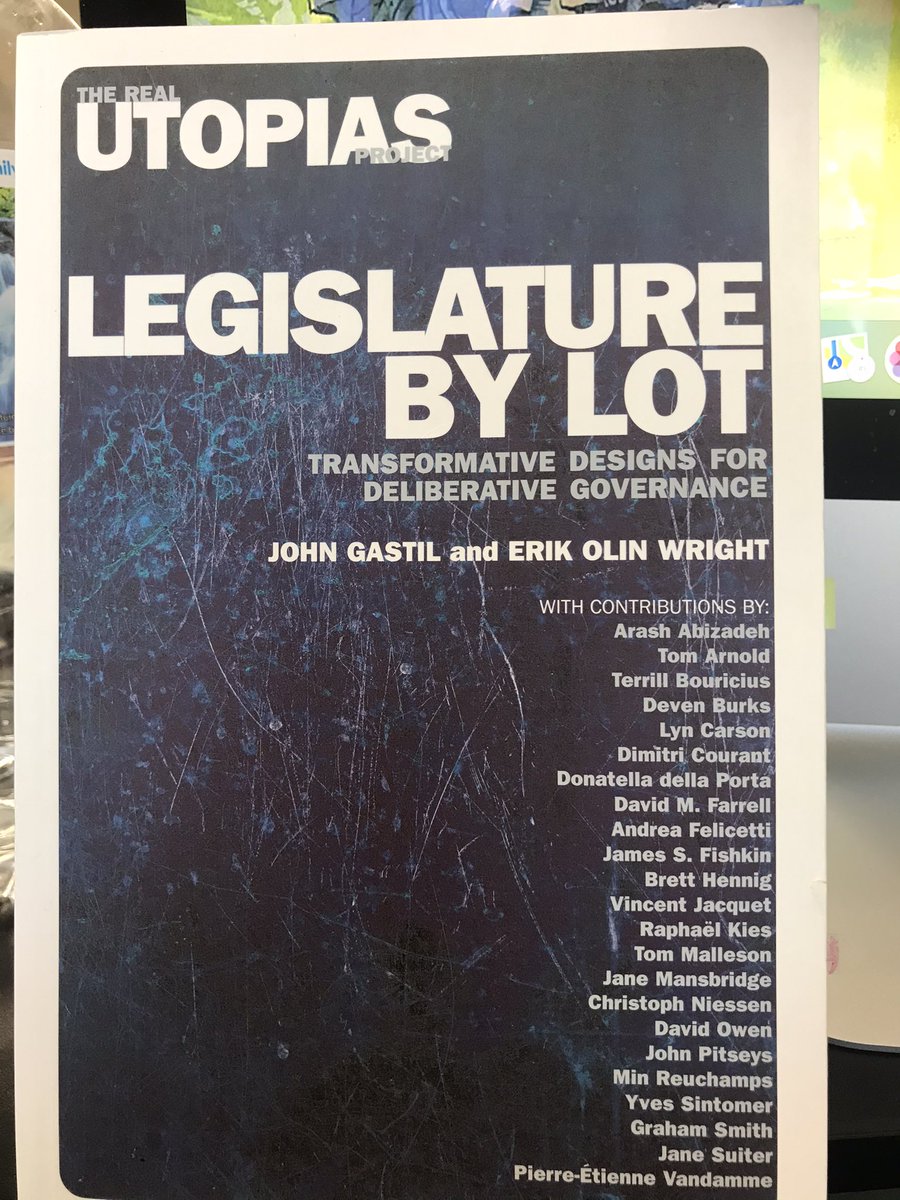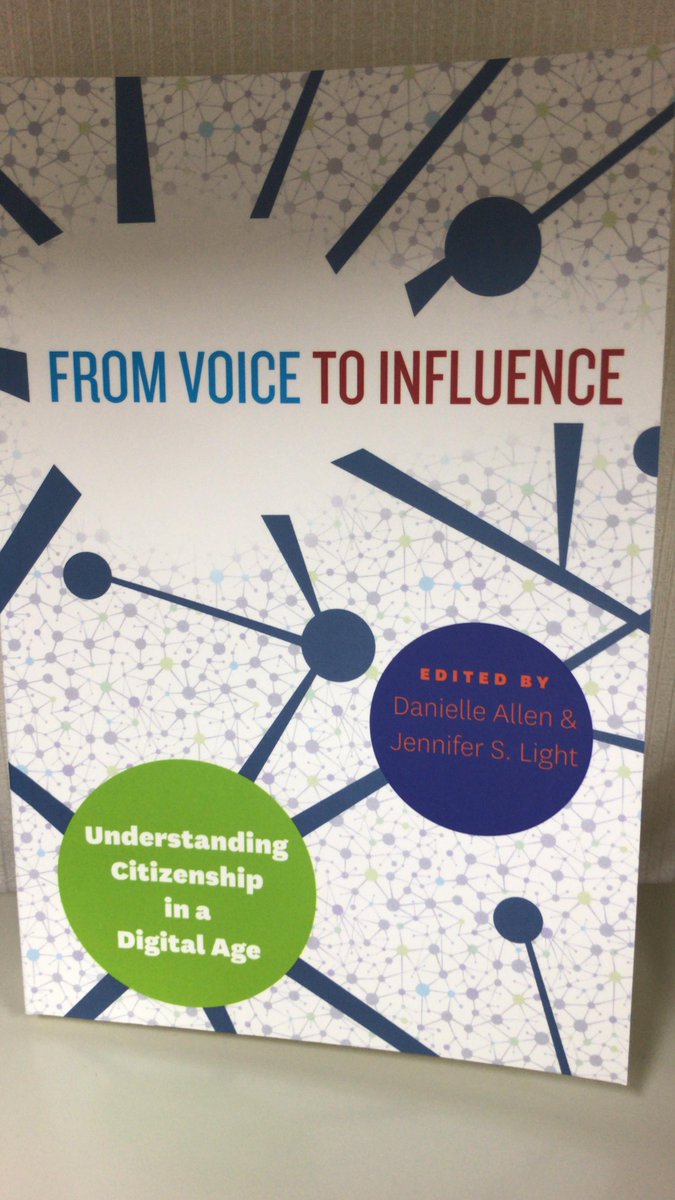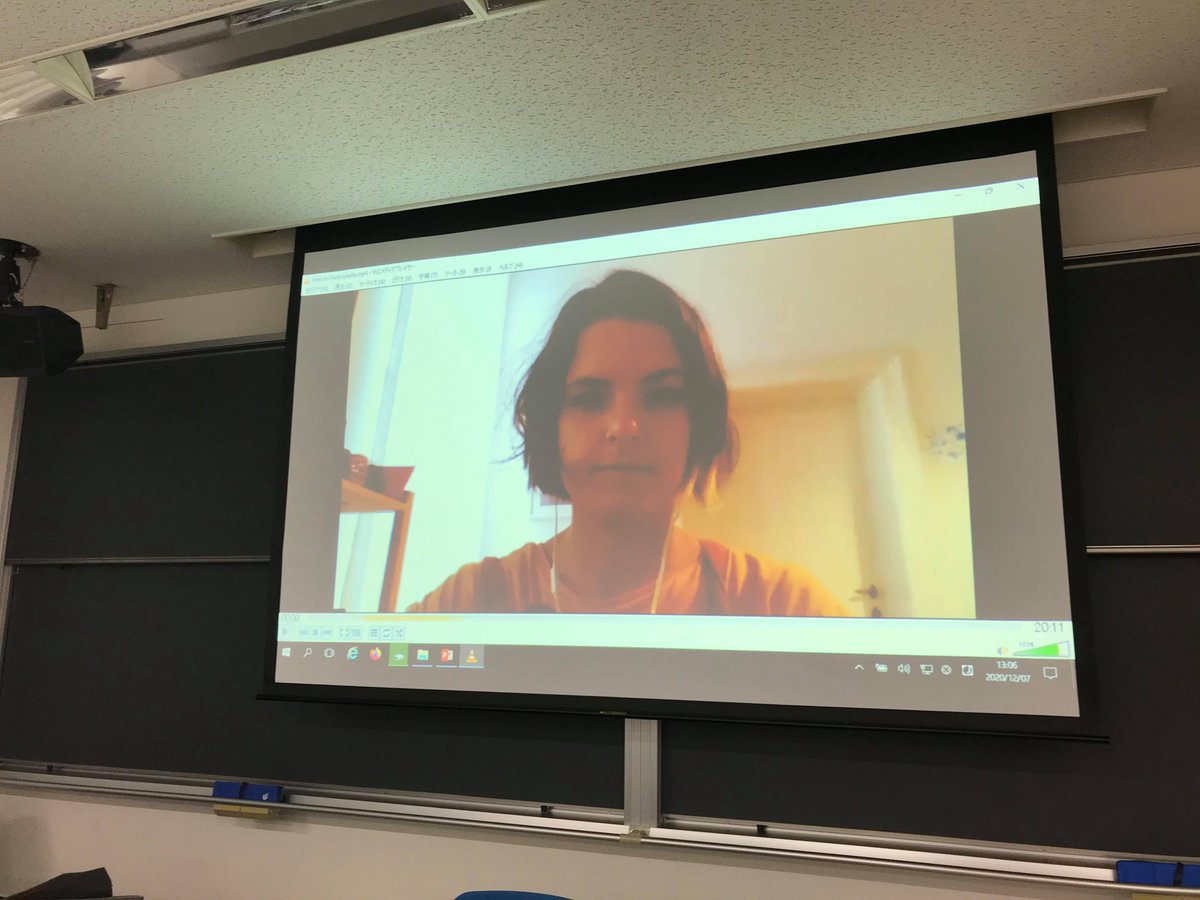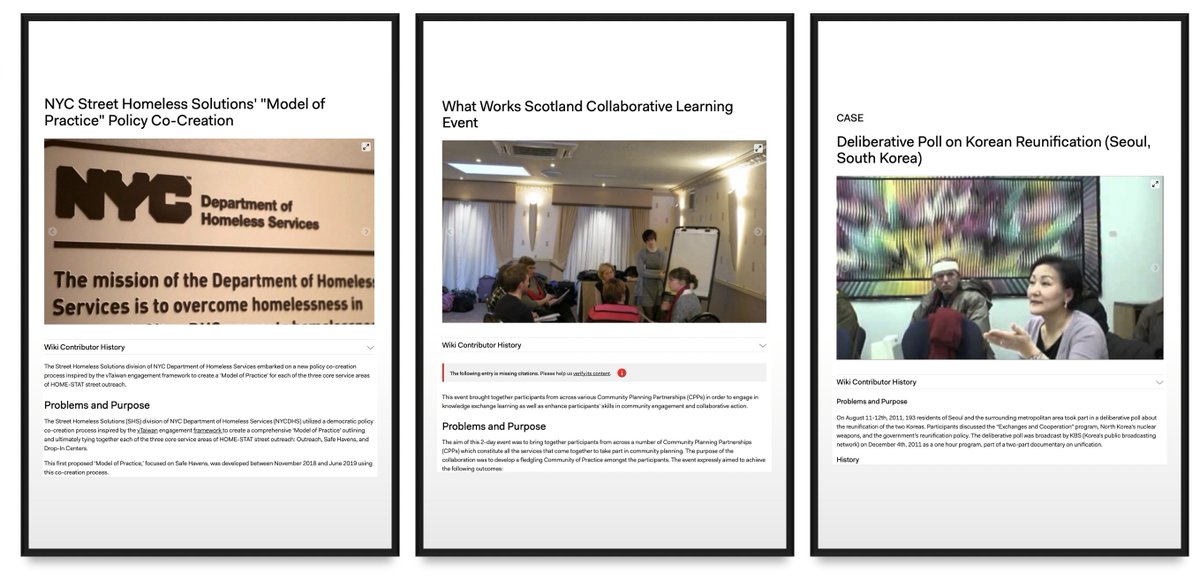In this semester, I teach an English course entitled "Crisis of democracy and democratic innovations." Every week, my students and I examine and discuss various issues. I learn a lot of things from my friends across the globe to prepare for this course.
[Week 2] The topic was "crisis of democracy." We discussed various crisis of democracy by focusing on various concepts of democracy. "The Crisis of Democracy" by @JeanPaulRGagnon and @selenAercan (Democratic Theory) always serves as a good starting point. https://www.berghahnjournals.com/view/journals/democratic-theory/1/2/dt010201.xml
[Week 3] Introduction to a deliberative theory. We read "Why deliberative democracy?" by Amy Gutmann to consider how we realise a deliberative democratic society in this chaotic world. Some students got interested in some chapters of The Oxford Handbook of Deliberative Democracy.
[Week 4] Deliberative Mini-Publics. @DelDemUCan's working paper "Deliberative Mini-Publics: Core Design Features" provides a useful summary of what delib MPs look like. https://www.governanceinstitute.edu.au/magma/media/upload/ckeditor/files/Deliberative%20Mini-Publics%20Core%20Design%20Features.pdf Problems with non-participation (Jacquet, 2017) were also discussed.
Week 5: Citizens Assembly! The case of  Citizens Assembly allows us to consider how we can make a better decision about controversial political questions (eg. abortion) in a democratic manner. My favorite book by @dfarrell_ucd & @JaneSuit always offers super rich insights!
Citizens Assembly allows us to consider how we can make a better decision about controversial political questions (eg. abortion) in a democratic manner. My favorite book by @dfarrell_ucd & @JaneSuit always offers super rich insights!
 Citizens Assembly allows us to consider how we can make a better decision about controversial political questions (eg. abortion) in a democratic manner. My favorite book by @dfarrell_ucd & @JaneSuit always offers super rich insights!
Citizens Assembly allows us to consider how we can make a better decision about controversial political questions (eg. abortion) in a democratic manner. My favorite book by @dfarrell_ucd & @JaneSuit always offers super rich insights!
Week 6: Deliberation Day as a democratic innovation or waste of money? We discussed its opportunities & challenges with respect to the  presidential election. The idea, originally suggested by Fishkin & Ackerman in 2004, is thought-provoking even today.
presidential election. The idea, originally suggested by Fishkin & Ackerman in 2004, is thought-provoking even today.
 presidential election. The idea, originally suggested by Fishkin & Ackerman in 2004, is thought-provoking even today.
presidential election. The idea, originally suggested by Fishkin & Ackerman in 2004, is thought-provoking even today.
Week 7: Can lottocracy improve the deliberative democratic quality of election? Or is it just a utopian project? A book eds by @jgastil and Erik Olin Wright offers various opportunities and challenges of lottocracy.
Week 8: Is the digital technolgy an enemy or friend of democracy? We examined various topics, such as anonymity ( @Hans_Asenbaum), algorithm ( @nnemr), clicktivism ( @MaxHalupka), viral engagements (the book ), AI politician ( @tama_ai_mayor), online deliberation ( @KimGron), etc.
), AI politician ( @tama_ai_mayor), online deliberation ( @KimGron), etc.
 ), AI politician ( @tama_ai_mayor), online deliberation ( @KimGron), etc.
), AI politician ( @tama_ai_mayor), online deliberation ( @KimGron), etc.
Week 9: Social movement as democratic innovations!! We focused on various innovative repertoires of contention in contemporary social movements (e.g. @AMarch4OurLives @StrikeClimate)! Della Porta's series of works  are quite helpful when I prepare for the lecture.
are quite helpful when I prepare for the lecture.
 are quite helpful when I prepare for the lecture.
are quite helpful when I prepare for the lecture.
Week 10: Deliberation & education. We learnt some key lessons from Delib in School projects in  (with @AWendyRussell & @PChalaye) and in
(with @AWendyRussell & @PChalaye) and in  (with @ogadi_ogadi & @asimov1920). Check out our @DelDemUCan working paper on deliberative facilitation
(with @ogadi_ogadi & @asimov1920). Check out our @DelDemUCan working paper on deliberative facilitation https://www.governanceinstitute.edu.au/magma/media/upload/ckeditor/files/[Centre]%20WP-2020-03-v3(1).pdf
https://www.governanceinstitute.edu.au/magma/media/upload/ckeditor/files/[Centre]%20WP-2020-03-v3(1).pdf
 (with @AWendyRussell & @PChalaye) and in
(with @AWendyRussell & @PChalaye) and in  (with @ogadi_ogadi & @asimov1920). Check out our @DelDemUCan working paper on deliberative facilitation
(with @ogadi_ogadi & @asimov1920). Check out our @DelDemUCan working paper on deliberative facilitation https://www.governanceinstitute.edu.au/magma/media/upload/ckeditor/files/[Centre]%20WP-2020-03-v3(1).pdf
https://www.governanceinstitute.edu.au/magma/media/upload/ckeditor/files/[Centre]%20WP-2020-03-v3(1).pdf
Week 11: Participedia! The lecture started with Sass & Dryzek (2014) on deliberative cultures. Then, we have a special guest, my friend @LucyJParry , who gave us the online lecture on how to use @participedia to study different forms of dem innovations in the world.
, who gave us the online lecture on how to use @participedia to study different forms of dem innovations in the world.
 , who gave us the online lecture on how to use @participedia to study different forms of dem innovations in the world.
, who gave us the online lecture on how to use @participedia to study different forms of dem innovations in the world.
Week 12: Students' presentation! @participedia allowed my students to study thought-provoking cases of democratic innovations across the world, such as "NYC Street Homeless Solutions" "Deliberative Poll on Korean Reunification" and "What Works Scotland."
Week 13: More presentations by students. We discussed the DP on reconciliation in , citizens' journalism in
, citizens' journalism in , California Speaks in
, California Speaks in & Citizens' Dialogue on the future health care in
& Citizens' Dialogue on the future health care in . Thanks @participedia (and @LucyJParry) for providing many thought-provoking materials!
. Thanks @participedia (and @LucyJParry) for providing many thought-provoking materials!
 , citizens' journalism in
, citizens' journalism in , California Speaks in
, California Speaks in & Citizens' Dialogue on the future health care in
& Citizens' Dialogue on the future health care in . Thanks @participedia (and @LucyJParry) for providing many thought-provoking materials!
. Thanks @participedia (and @LucyJParry) for providing many thought-provoking materials!
Week 14: Why do we need the transnational democratic innovations? We draw insights from Fishkin's Tomorrow's Europe project and our @AssemblyWorld project. Check out the opinion piece by @iacocoba and @susan00lee (DelDem Digest series @delibdemjournal) https://www.publicdeliberation.net/the-challenge-of-global-deliberative-democracy/

 Read on Twitter
Read on Twitter




![Week 10: Deliberation & education. We learnt some key lessons from Delib in School projects in (with @AWendyRussell & @PChalaye) and in (with @ogadi_ogadi & @asimov1920). Check out our @DelDemUCan working paper on deliberative facilitation https://www.governanceinstitute.edu.au/magma/media/upload/ckeditor/files/[Centre]%20WP-2020-03-v3(1).pdf Week 10: Deliberation & education. We learnt some key lessons from Delib in School projects in (with @AWendyRussell & @PChalaye) and in (with @ogadi_ogadi & @asimov1920). Check out our @DelDemUCan working paper on deliberative facilitation https://www.governanceinstitute.edu.au/magma/media/upload/ckeditor/files/[Centre]%20WP-2020-03-v3(1).pdf](https://pbs.twimg.com/media/EoIXtRwUYAYM2TH.jpg)








